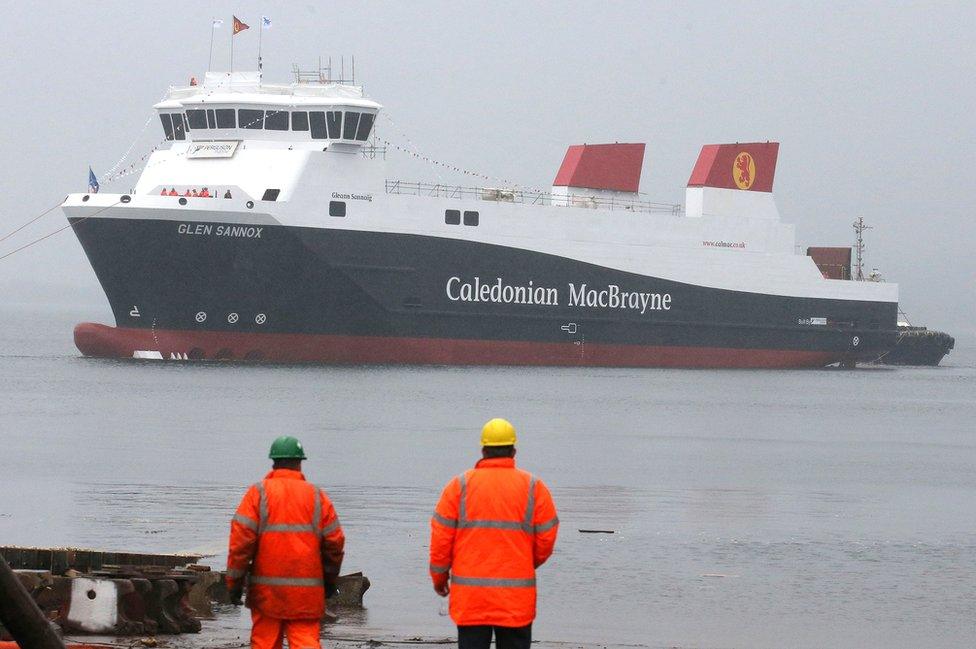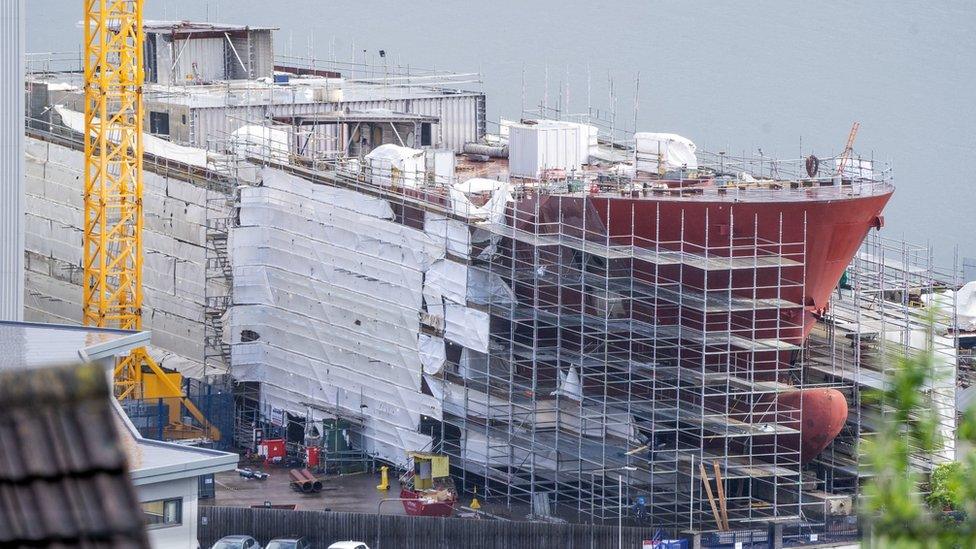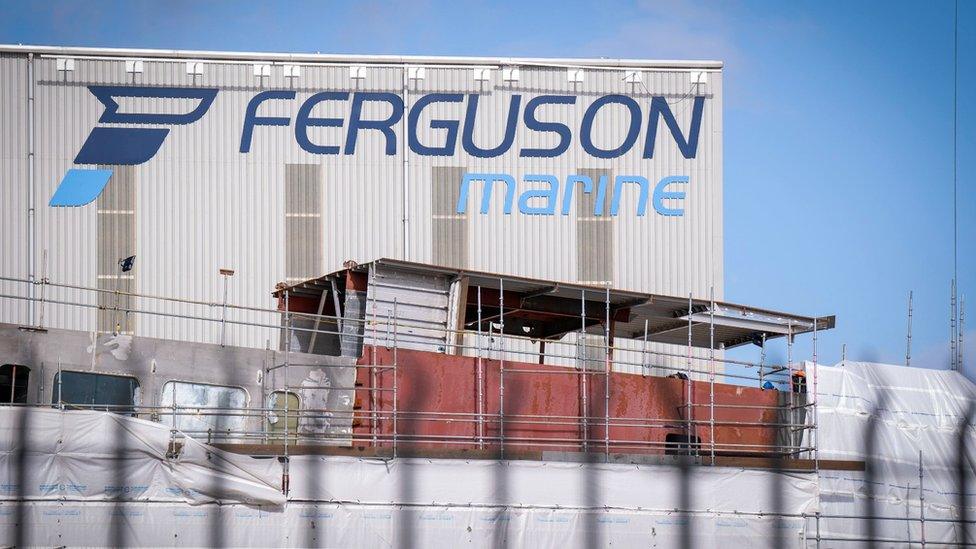Call for police probe into Scottish ferries row
- Published

The Scottish Conservatives have called for a police probe into suggestions the process of awarding a £97m Scottish ferries contract may have been rigged.
Documents obtained by the BBC suggest that successful bidder Ferguson Marine Engineering benefited from preferential treatment in the deal.
Tory MSP Graham Simpson said the findings "look like corporate corruption".
Scotland's Auditor General has been asked to investigate.
Deputy First Minister John Swinney said he was concerned by findings in Tuesday's BBC Disclosure programme but added it was not the place of government to call in the police.
Mr Swinney said the Auditor General and spending watchdog Audit Scotland would be given his full support as it decided if further audit work was required on the project in light of the revelations.
First Minister Nicola Sturgeon told Holyrood she had not seen any evidence of criminality in the procurement and construction of the ferries, but she insisted coming to that conclusion was "not my job".
Government-owned ferries agency CMAL has defended the procurement and said an audit in 2018 found "no adverse issues".
The two ferries are still being built for public ferry firm CalMac, but will be at least £150m over budget and five years late.

Mr Simpson, Scottish Conservatives' transport spokesman, said: "It appears Ferguson received special treatment from this government and its agencies.
"If the government accepts this is wrong - and they appear to do that - but they don't know how this happened or who is responsible, then the government must now call in the police to investigate.
"Because if Ferguson received special treatment, for whatever reason, it is beyond a scandal. It is a crime."
Mr Swinney told BBC Radio's Good Morning Scotland programme that "significant issues" had been raised in the BBC documentary.
"I've watched the programme and seen the detail so I am concerned about what has been raised.
"It is not for me to call in the police, the police operate independently of government."

The deputy first minister said the government and its agencies would "fully support" any investigation by public spending watchdogs and added that it was "entirely appropriate that all of these things are subject to scrutiny".
Audit Scotland said the BBC's investigation raised "serious questions" about the use of public money.
"We will be looking at the substance of the allegations raised around procurement by the programme before deciding whether further audit work is required," it said.
'No evidence'
Appearing at the Conveners' Group in the Scottish Parliament, Ms Sturgeon was quizzed on calls for a police probe into the row.
She said: "I don't think anyone would say that I should be the arbiter on this, or any issue, on whether there has been criminality.
"I've certainly seen no evidence of that, but it is not my job.
"We have independent authorities that are there to determine these issues on whatever topic it is that we're speaking about."
The BBC Disclosure documentary uncovered evidence of a number of irregularities:
CMAL may have broken its own rules by allowing Ferguson to go ahead with its bid despite being unable to provide evidence of a builders refund guarantee, a mandatory financial safeguard.
Ferguson obtained a 424-page document from a design consultant setting out CalMac's technical requirements, while other bidders had to rely on a more limited 125-page specification. A key section of its bid was mostly cut-and-pasted from this longer document
The shipyard was allowed to significantly change its design halfway through the tender by developing a variant mentioned but discounted in its original submission.
This change also allowed it to reduce its price by nearly £10m, making it more competitive
CMAL assessors held a "confidential" meeting with Ferguson, the only bidder to receive an in-person meeting
The Port Glasgow shipyard fell into administration in August 2014, but was bought a week before the independence referendum by Jim McColl, a businessman who sat on First Minister Alex Salmond's council of economic advisers.
The following year his new firm, Ferguson Marine Engineering Ltd (FMEL), won a £97m contract to build two dual fuel LNG vessels for state-owned ferry operator CalMac.
But the project has been beset by problems and the yard has been nationalised after going back into administration.
Ferguson copied a large section of its bid from a CalMac document
The delays have added to pressure on CalMac's old and increasingly unreliable fleet.
The Arran route, where the first ship was due to enter service in 2018, has faced more than 2,500 cancellations in the past five years.
CMAL said in a statement that new information contained in the programme would need to be "carefully investigated".
It added that some staff employed at the time had now left.
It said its board had voiced concerns to Transport Scotland about the contract award to Fergusons, particularly in relation to the lack of refund guarantees, which were well-documented.

Disclosure: The Great Ferries Scandal
Mark Daly investigates what went wrong at the Ferguson shipyard, and raises questions about the tender process that saw the contract awarded in 2015.
